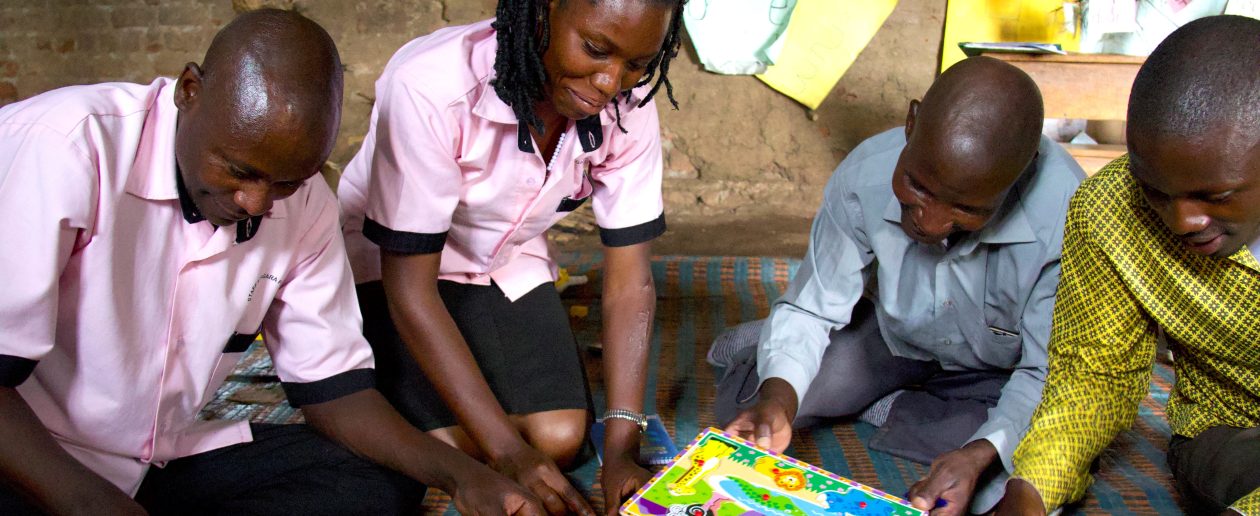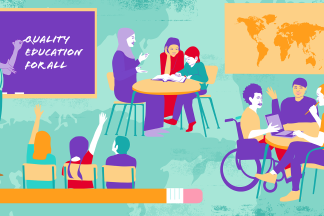What do you remember about your own childhood? What were your favourite childhood games? How do you recall your playmates, and what about the adults who guided you?
When we began to discuss the core themes of early childhood development (ECD), the importance of play quickly became a central topic in the global development of ECD. A child lives and learns through play. The significance of play in a child’s learning journey cannot be overstated.
Learning through joy and engagement is especially effective in early childhood when the mind is at its most impressionable. The more tangible and hands-on the educational experiences are, the more deeply a young child absorbs and understands new concepts.
Play, often seen merely as amusement, is an incredibly powerful method of learning. It intertwines learning with social skill development, making it a key tool for holistic growth. Research from around the world consistently highlights the critical importance of play in fostering a joyful approach to learning. Despite this evidence, a persistent scepticism remains, suggesting that true learning requires struggle, monotony, and hard work—things seemingly devoid of joy. Emphasizing the role of play is indeed a central theme in the global development of ECD.
The foundation for essential life skills is laid in early childhood
Parents often question the value of paying for early education where children primarily play, arguing that children can play at home. However, social skills—one of the fundamental life skills—cannot be developed without practice. Interacting with peers in a group setting is one of the best ways to practice these skills.
The sensitivity to many academic skills emerges later, not during early childhood. Why focus on teaching academic skills to three- or four-year-olds when these concepts are often too complex for their developmental stage—especially when basic English skills may still be lacking? In such cases, we risk wasting their childhood on matters that are irrelevant to them. However, if we miss the opportunity to develop children’s social skills, thinking and problem-solving abilities, creativity, and self-expression—the skills learned through play—it impacts the child throughout their life.
From apathy to activity, from rote to creativity
How do we support children in growing into socially competent, emotionally strong individuals who help each other, learn, share, are creative, and have good communication and self-expression skills? According to Charles, in his work in Uganda, there is a noticeable difference in the behaviour of children in the ECD centres where teachers have received training in play-based learning compared to those using traditional methods:
“The moment you step into a classroom where the teacher uses play-based learning, you see that the children are free and social, able to express themselves in many ways. Those in classrooms where play is not part of the curriculum are apathetic, just waiting to be asked and then responding with what they know. A play-based classroom is always active and engaging, and children can freely use materials. They can use one thing in many ways, meaning the child’s creativity has developed, and materials are used differently. But those accustomed to rote learning are much more limited in their thinking; for example, they think a ball is only for kicking, whereas children engaged in play-based education can use a ball in countless ways in their games and activities. Likewise, teachers who use a play-based approach are creative and social with the children.”
Teachers are a key to creating joy and desire to learn
It is through play that children learn to collaborate with others, express their feelings, use their imagination, process past experiences, and acquire various skills. Play fosters holistic well-being, stress-free learning, and a sense of belonging. Pedagogical play allows both children and teachers to learn together, creating a shared world of wonder and imagination.
When working with children, it’s essential to ask ourselves whether we are engaging them meaningfully or merely passing the time with idle activities. Learning theories emphasize that a child sitting passively, uninterested in the subject, learns little. Therefore, it’s crucial to ensure meaningful engagement. Passive learning yields little; enthusiasm fuels knowledge acquisition. As the saying goes, “What you learn without joy, you forget without sorrow.” Learning rooted in joy and enthusiasm creates lasting memories, making education a profoundly meaningful journey. A child experiences their precious and unique childhood only once. The foundation for many essential skills, values, and life attitudes is established in the first six years, and as adults, we should never forget this.
As a teacher or a parent — do you believe in the power of play?
Elina Kataja is a Finnish early childhood education expert currently working as the Head of Teacher Training in India. She is also a volunteer with Teachers Without Borders, focusing on early childhood education development in Kenya, Syria, and Uganda.
Charles Oriokot is ECD coordinator with Finn Church Aid, working in the refugee settlements in Uganda.
The blog post is based on a conversation between Elina and Charles on key themes in ECD.




